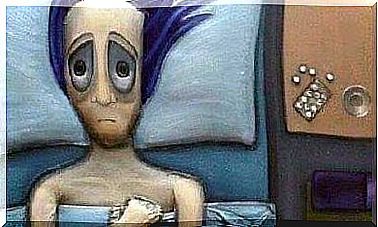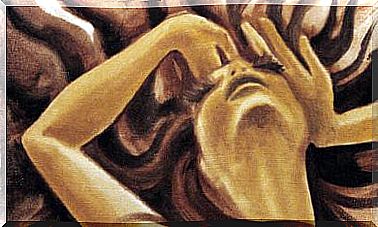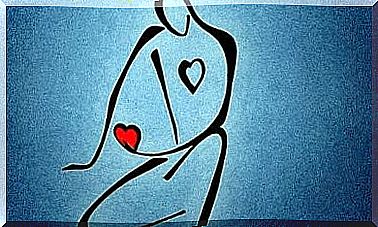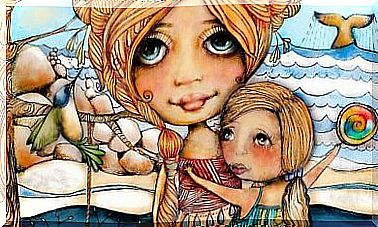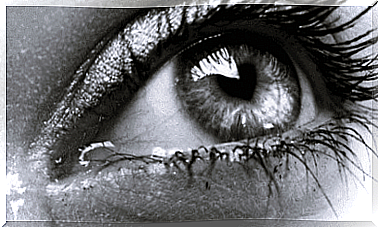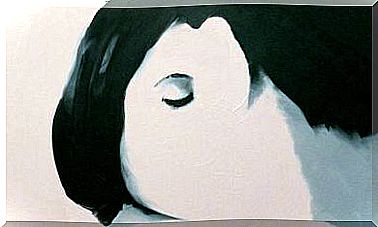Difficult Relationships: How To Reinterpret Your Life Story

Our socialization begins when we are children and becomes part of social groups that change and grow over time. These social groups involve different types of relationships, including difficult relationships.
Humans are social beings. Therefore, we could not live healthy lives if we could not relate to other people.
Who has not had a difficult relationship with a partner, a family member or a friend? Although it may be easy to think that these people are just putting a brake on your life, it would be more constructive to see them as challenges instead.
It is impossible to get away from the fact that life itself is a challenge. During the course of life, you have to navigate different phases, cycles and relationships.
When people relate to each other – each with their own “baggage” and temperament, their own character traits, circumstances and dreams – it is almost like an ambitious psycho-chemical experiment.
Although you always hope to get along with other people, it does not always work that way.

Sparks or fire
When you start a relationship with someone, whether the relationship is romantic, professional or platonic, you feel a kind of spark. The connection makes you feel alive, loved, admired and respected.
However, it happens that this spark is transformed into fire. Sometimes it can seem like you can’t do anything about difficult relationships. The tension escalates and leads to defensive attitudes and exchanges.
A different way of dealing with difficult relationships
In books and movies, all the main characters have their own dynamic personality, which emerges as the plot unfolds.
Situations arise, conflicts arise and it is usually the main characters’ opponents who provoke them. These opponents often challenge the main characters’ perspectives.
They force them into situations where they have to resort to all their resources and skills.
Life is not so different. Play the lead role in your own life and see if you can identify your opponents. What kind of challenges do they represent? How can you overcome these resistances and become a better person?
Victims and heroes in difficult relationships
There are always two paths you can choose from to deal with difficult relationships. You can feel sorry for yourself and play victim or you can find a solution that gives you power.
It’s not about confronting your opponent. Instead, it is about analyzing your own behavior to try to figure out what made you end up in a certain situation.
Uncertainty is not good when dealing with difficult relationships. If you want to choose the path of the hero, you must start from self-esteem and self-esteem.
Simple phrases like: “If you keep talking to me that way, I’m leaving here” reflect a strong and courageous attitude. Your opponents often have power over you because they attack you right where you are most vulnerable.
Understand your reactions
An extremely important part of your psychological development is to understand, heal and change the way you react to emotional wounds.
Many therapists believe that we unknowingly attract people who have the best and worst qualities of our parents.
And there is a reason for this. It is an unconscious reaction to our deep-rooted need to solve problems that we have not been able to solve with our parents.
Many people strive to gain the admiration and respect of a critical and strict parent.
If you notice that your difficult relationships follow a certain repetitive pattern of authority figures, your opponents may represent a dominant parent who was never happy with you.
Therapists often use this role play with the main character / opponent to help their clients with their personal development. It is a personal exercise, where you discover your and your opponent’s roles.
But unlike the characters in books and movies, your opponents will not be demonic or truly evil people.
Most often, they are just like you, people with their own fears, hopes, emotions and learned behavior patterns. They are vulnerable and weak, just like everyone else.
Teacher in patience
If you choose to follow the hero’s path to tackle difficult relationships, you will begin to see your opponents as teachers.
You will assume that they are there to help you become resilient, brave, compassionate and flexible, among other things.
In fact, you can use these difficult relationships to improve your own character and your emotional well-being. If you work with this, you will be able to develop and improve areas that have been dormant within you.
Furthermore, you will rediscover resources that you forgot you had or that you ignored.

Powerful questions
Personal trainers use many powerful questions to help their clients. When dealing with difficult relationships, you can ask yourself some appropriate questions. These will help you discover your judgment.
If you were to write a book about your own life, analyze which characters would appear in the story. Ask yourself who your opponents are and what makes them so difficult.
Ask yourself why you choose these particular characters. It is usually the case that the opponents help the main characters to develop and get better in one way or another.
Another good question is what abilities or virtues can help you with your difficult relationships.
During coaching, therapists often talk about virtues such as self-confidence, resilience (or resilience), courage, compassion, patience and self-awareness.
If you are willing to be the author of your own story, you may want to start by sitting down and rewriting the script. Observe the situations in your life and your difficult relationships from a spectator’s perspective.
It can help you understand what is going on and give you clues on how to solve your problems.

